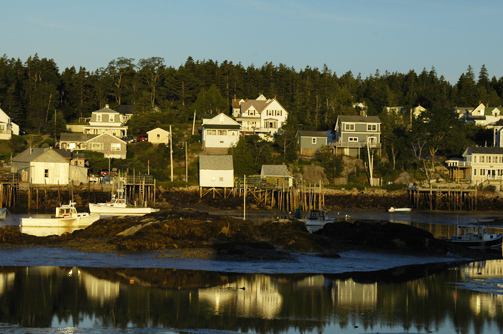Press Releases
New climate assessment highlights threats to Maine economy, environment
Washington, DC,
May 6, 2014
Comprehensive scientific study show rising sea levels and warming temperatures threaten Maine communities and fisheries
Congresswoman Chellie Pingree said the findings of a new, 4-year scientific assessment of climate change point to significant threats to Maine's coastal communities and economy. The report—the third National Climate Assessment (NCA)—is the product of the work of over two hundred scientists and details the likely affects of climate change: increased heat waves, more rapid melting of glaciers in Alaska, and heightened risk of coastal flooding.
The report says that sea level rise along our coast is expected to increase the global average and could be particularly rapid if the Gulf Stream current is weakened, which some scientists say will happen. From 1982 to 2006, sea surface temperature in the coastal waters of the Northeast warmed by close to twice the global rate of warming over this period. Long-term monitoring of bottom dwelling fish communities in New England revealed that the abundance of warm-water species increased, while cool-water species decreased. A recent study suggests that many species in this community have shifted their geographic distributions northward by up to 200 miles since 1968. (Chapter 24)
Pingree said the center of the lobster fishery has moved up the Maine coast in recent years, an example of the northward shift that scientists described. |

